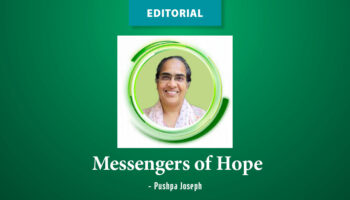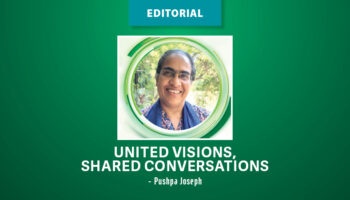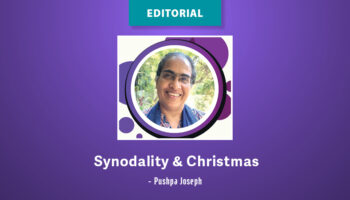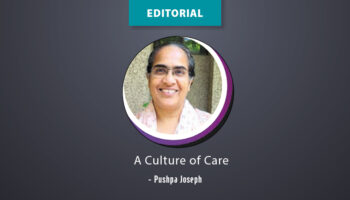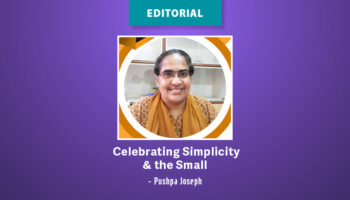After describing a particularly difficult community member’s irresponsible and insulting behaviour, the superior asks me: “What can we do to make her be a nicer and more responsible person? No community wants her. What can I do?”
“Very little,” I reply. “Almost nothing—except to pray for her. Such persons should have been corrected during formation and, if found unresponsive, asked to leave.”
“But she is good in music.”
“That is a mistake frequently made. We see someone is a problem in one community after another. S/he is offensive, irresponsible and a pain to live with. The formators do not want to take the unpleasant step of asking the person to discontinue. Or a formator points out, as you did just now, some talent the person has. We can always find music teachers (or computer operators or administrators). Religious life is not about one’s talents. It is a search for God in community. If someone does not fit in, and is a problem repeatedly, he or she should not be allowed to go ahead.”
Pope Francis spoke to superiors of the need of forming the heart. “Otherwise,” he said, “We will form little monsters who will then be in charge of our people.”
Our mission as religious—our real and most important job—is not the work we do. For most of what we do, we do not need celibacy or religious life or faith in Jesus. Our real job is to be joyful and loving witnesses to God’s love in the world. If we are serious about that, our driver and cook, our students and patients, our visitors—and particularly the “least”—will experience God’s tender love through us. The first group with whom we share this love and God-experience is our community. If a community is not happy and loving, if it is fear-filled or depressing, there is something wrong with us. Living in such settings will damage the members, just as living in a family with an abusive drunkard does enormous harm to spouse and children.
A family, a convent, a seminary (or a school or hospital run by religious) can vibrate with love, goodness and godliness—or the opposite. Our mission, to repeat, is not teaching mathematics or giving injections or distributing funds to the poor. It is a mission of love joyfully shared. If it is real, people living in the setting will know it by experience. This is how Father Paul Albera, the second successor of Don Bosco, recalled his days as a boy under Don Bosco’s care: “We were caught up in a current of love. We felt loved in a way we had never been before.”
Can we replicate that today? I am fully convinced we can. I have seen it—not only in families, but in religious houses and seminaries and even complex institutions. A layman teaching in a major seminary told his close friend, “I have lived here with the Fathers and Brothers. I can say that this is a home of love.” A priest who studied in that seminary would tell other priests later: “Our seminary was truly a loving home. I would love to meet our formators again any day.” A young sister said this about her provincial: “This we can say about our new provincial—that she loves us!”
Read this month’s cover story to learn more about community life.
But, more than from magazines and talks, learn from the most loving human beings you have lived with, and be more like them—and like Jesus—with the next person you meet—and the next, and the next. The world will then be a truly better place—a bit of heaven on this messed up earth.
This is the heart of our vocation. This is why we join religious life. May we never go off the track.

To subscribe to the magazine Contact Us

